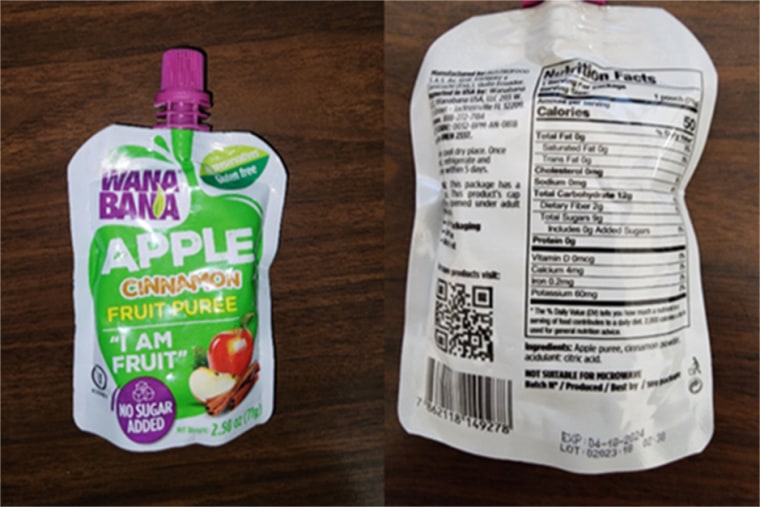The U.S. Food and Drug Administration is warning parents and caregivers not to buy or serve certain pureed fruit pouches marketed to toddlers and young children because the food might contain dangerous levels of lead.
Children who have eaten WanaBana apple cinnamon fruit puree pouches should be tested for possible lead poisoning, the agency said.
Four children in North Carolina were found to have high levels of lead in their blood linked to the puree products, health officials said. State health officials analyzed multiple lots of the product and detected “extremely high” concentrations of lead. The FDA confirmed the results and said they could lead to “acute toxicity.”

WanaBana, which is based in Coral Gables, Florida, has recalled all lot codes and expiration dates of the snack products, which are sold nationally, including at Sam’s Club and Dollar Tree and on Amazon.
Lead is toxic to people of all ages, but can be especially harmful to children. Most children have no obvious symptoms, so it’s important that kids who are exposed get tested to check levels of lead in their blood. Short-term exposure to lead can result in symptoms that include headache, abdominal pain, vomiting and anemia, the FDA said.
Heavy metals like lead can get into food products from soil, air, water or industrial processes, according to the American Academy of Pediatrics. Lead exposure can seriously harm children’s health, causing damage to the brain and nervous system and slowed growth and development. There is no known safe level of lead exposure, the AAP said.